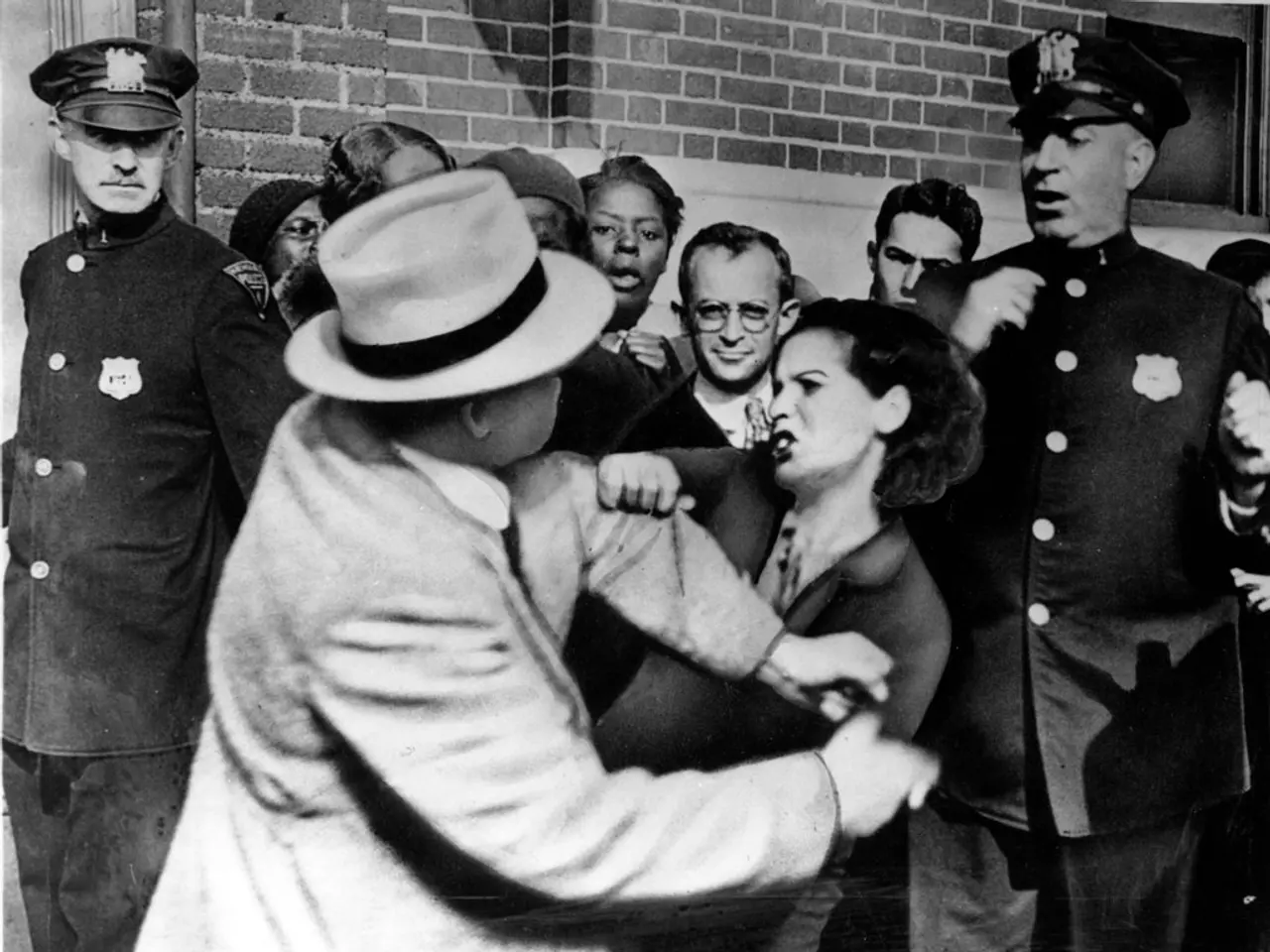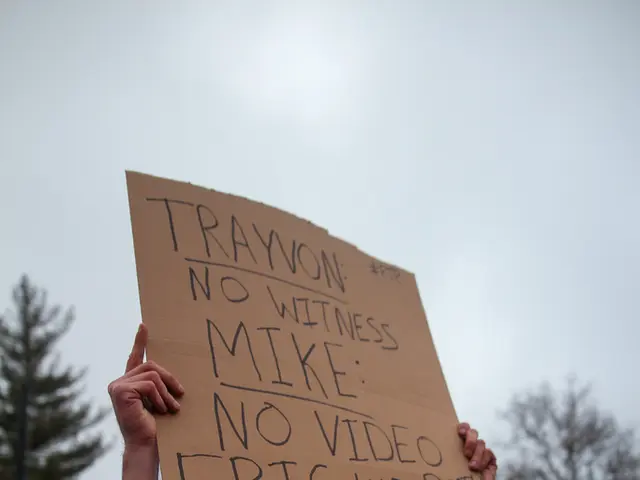Trump alters standpoint on ceasefire following encounter with Putin
The recent meeting between President Trump and Russian President Vladimir Putin in Alaska has shed light on significant disparities between Ukraine's and Russia's positions regarding a ceasefire and a comprehensive peace agreement.
- Territorial Control
- Russia proposes a comprehensive solution where it would halt fighting and freeze battle lines if Ukraine surrenders all remaining territory in the Donetsk and Luhansk regions currently under Kyiv's control.
- Ukraine is unlikely to accept such terms, as they involve significant territorial concessions.
- Ceasefire Preconditions
- Russia has historically been reluctant to accept a ceasefire unless it is on its terms, often linking it to broader political and territorial concessions.
- Ukraine seeks a ceasefire as a step towards a more comprehensive peace agreement but is cautious about terms that could disadvantage its security position.
- Security Guarantees
- Russia insists that any peace agreement must include guarantees where all guarantor countries, including Russia, have veto power over future actions, and a reduction in the size of the Ukrainian army.
- The Ukrainians and Europeans prefer a different model, with NATO providing a limited military presence in Ukraine as a reassurance force, rather than a combat force.
- International Involvement
- Russia wants permanent members of the UN Security Council, including itself, to be signatories to any agreement, giving it significant influence over the terms.
- Ukraine and its European allies prefer a more Western-aligned approach, with less emphasis on Russian veto power over international actions.
These differences underscore the challenging path to achieving a mutually acceptable ceasefire and peace agreement.
From Russia's perspective, agreeing to a ceasefire could cost the Russian military its momentum in the fighting and reduce its current leverage. On the other hand, Ukraine fears that without a ceasefire, Putin will continue to drag out the war and make further demands.
Following the diplomatic incident, Zelenskyy and Ukraine have worked to rebuild their relationship with Trump. However, during a previous White House visit, Zelenskyy and Trump had a heated dispute, with Trump telling Zelenskyy that he didn't have the "cards right now."
Russia's demands include Ukraine giving up additional land in the eastern Donbas region, not being allowed to join NATO, and greatly restricting the size of Ukraine's military. In contrast, Ukraine advocates for an immediate ceasefire as the quickest way to halt fighting in the short-term.
Ukraine proposes a ceasefire first, followed by negotiations for a permanent peace agreement to reduce the risk for Ukraine. After meeting with Putin, Trump stated that a ceasefire was not essential and a permanent peace agreement was preferred. However, Ukraine's advisor Serhiy Leshchenko stated that Ukraine's vision is for a ceasefire first, then negotiations.
Trump expressed disappointment if a ceasefire did not occur and warned of "severe consequences." As the situation continues to unfold, it remains to be seen how these differences will be resolved and whether a peaceful resolution can be achieved.
During his Monday visit to the White House, Zelenskyy will have additional support as several European leaders will travel with him to make the case for further Western support for Ukraine. The meeting between Zelenskyy and Trump promises to be a significant event in the ongoing Russia-Ukraine conflict.
- The meeting between Zelenskyy and Trump raises questions about Ukraine's position in terms of credit and support from the United States, given Trump's past statements like "you don't have the cards right now."
- The stalled peace talks between Russia and Ukraine highlight the significant role that war-and-conflicts, policy-and-legislation, and politics play in shaping the general news landscape.
- Russia's insistence on ESG factors such as a reduction in the size of Ukraine's military and Ukraine's exclusion from NATO increases the fire of controversy and adds another layer of risk to the already complex situation.
- The recent meeting between the leaders has brought to light the leverage each nation holds, with Russia using its military momentum as a bargaining chip and Ukraine relying on its Western allies for support.
- The upcoming talks between Zelenskyy and Trump could potentially serve as a platform to discuss policies that could ensure a more secure future for both nations, reducing the looming risk of escalating conflicts.
- The global community closely watches the geopolitical dynamics involving Russia and Ukraine, with the outcome having potential implications on other regions where war-and-conflicts and policy-and-legislation are intertwined.







